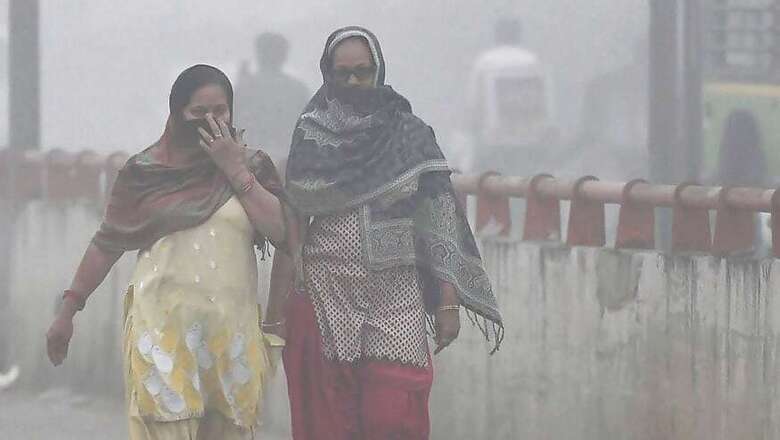
views
New Delhi: The odd-even rule will not return to smog-hit Delhi from Monday with the AAP government deciding to call off the car rationing scheme after the National Green Tribunal ordered the withdrawal of exemptions given to two-wheelers and women drivers.
Delhi transport minister Kailash Gahlot said the government will again approach the green court on Monday and challenge the riders imposed by it. A final call on the odd-even plan will be taken after the hearing on Monday.
The government said it is not ready “to compromise with the safety of women” after the NGT ordered that there should be no exemption to anyone apart from emergency vehicles such as ambulances and fire tenders.
The decision to call-off the scheme was taken at a meeting chaired by Arvind Kejriwal and attended by ministers, including Gahlot, Gopal Rai and Imran Hussain. Senior officials, including the Chief Secretary, were also present in the meeting at Kejriwal's residence.
Explaining the decision, Gahlot said that while pollution levels going down are important, women safety is paramount. “We respect the NGT decision. Two conditions of NGT that two-wheelers and women cannot be exempted make it difficult to implement odd-even as we will not have the adequate number of buses," he said.
"We cannot compromise with the safety of women. We cannot take risks. PM2.5 and PM10 levels have also come down. So at the moment we are calling it off. We will file a review application in NGT on Monday," the minister said.
Earlier this week, the Delhi government had announced implementation of the odd-even scheme from November 13-17, given the high level of smog in the capital. Schools were also shutdown till Sunday.
This would have been the third time the Delhi government had used it as a way to control pollution in the city by cutting down vehicular emissions.
An irate NGT, however, noted on Friday how odd-even’s supposed benefits were highly disputed, and asked the government why it hadn't imposed it earlier. “You are only encouraging people to buy more vehicles and allowing more inter-state traffic. We will not allow odd-even vehicle rationalisation scheme until you prove that it's not counter-productive,” said the bench.
On Saturday though, the tribunal bench headed by NGT chairperson Justice Swatanter Kumar gave its nod grudgingly and said only CNG and emergency vehicles should be excused.
The tribunal came down heavily in the government's tendency to use odd even as a solution, saying, “You are getting the tag of the worst capital in the world. The Supreme Court and NGT have suggested hundred measures to curb pollution, but you always opt only for odd-even. Nothing has been done by the Delhi government in the past one year.”
A landmark IIT-Kanpur study, which covered the period 2013-14, has said that during winters, vehicles are the second largest and the "most consistent" contributing source of pollutants PM10 and PM2.5.
In terms of percentage, it comes to around 20-25 per cent during winters, the report says. The contribution of road dust is negligible during the colder months unlike summers when it plays a bigger role.
However, the share of two-wheelers, three-wheelers, four-wheelers, trucks and light commercial vehicles in the total vehicular contribution shows that trucks and two-wheelers are the major polluters.
According to the study, which was commissioned by the Sheila Dikshit government, the share of four-wheelers in the break-up of vehicular contribution is 10 per cent each in cases of both PM2.5 and PM10.
On the other hand, the share of trucks and two-wheelers stands at around 46 per cent and 33 per cent respectively.




















Comments
0 comment